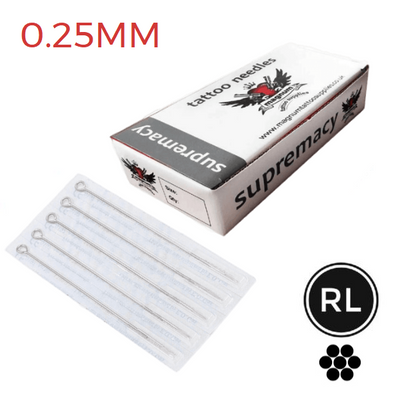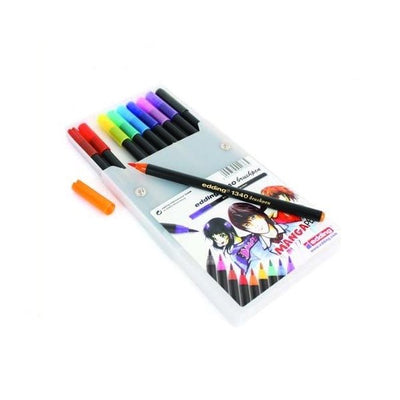For tattoo artists, dealing with bad client behaviours is part of the job. From clients who can't decide what they want to those with high expectations or who don't follow care instructions, these challenges can make it hard for artists to do their best work. Handling these situations well is crucial for keeping a good vibe in the studio, ensuring the quality of tattoos, and maintaining positive relationships with clients.
Now, let's talk about how to deal with these challenges. We'll give you some straightforward tips on communicating better, setting clear rules, and understanding what your clients really need. Whether you're new to tattooing or have been doing it for years, these tips will help you manage tricky situations and keep your studio a positive place for everyone.

Common tattoo clients' red flag behaviour
- Haggling over price excessively: While it's normal for clients to inquire about pricing, persistent bargaining or attempts to undervalue the artist's work can be a red flag. Tattoos are art forms that require time, skill, and resources.
- Indecisiveness: Clients who constantly change their design ideas, placement, or size at the last minute can indicate a lack of commitment or understanding of the tattoo process, making it challenging for the artist to prepare and deliver the best work.
- Not respecting the artist's expertise: Clients who refuse to listen to professional advice regarding design, size, placement, or colour choices might end up with a tattoo that doesn't meet their expectations or is not feasible.
- Bringing too many people: While bringing a friend for support is understandable, a large group can distract the artist and disrupt the studio's working environment.
- Being under the influence: Showing up to a tattoo appointment under the influence of alcohol or drugs is a significant red flag. It can affect the client's ability to make sound decisions and the tattooing process itself.
- Ignoring aftercare advice: Clients who seem dismissive or uninterested in aftercare instructions may not take proper care of their tattoo, leading to poor healing or infection.
- Unrealistic expectations: Clients who expect the artist to replicate a highly detailed or photorealistic image in a tiny area or expect perfection in complex designs that might not translate well into tattoos can be problematic.
- Lack of personal hygiene: Since tattooing is an intimate process involving close physical contact, poor hygiene can be uncomfortable for the artist and pose health risks.
- Ignoring deposit policies or appointment times: Clients who baulk at paying a deposit or frequently cancel and reschedule appointments show a lack of respect for the artist's time and scheduling needs.
- Overly aggressive or flirtatious behaviour: Respectful and professional behaviour is expected in any business interaction. Clients who do not respect personal boundaries can create an uncomfortable or unsafe working environment.

So, how do you deal with these bad behaviours as a tattoo artist?
Establish clear communication from the start
It's vital to set clear expectations with your clients regarding the design, pricing, time estimates, and any other relevant details before the tattooing process begins. This can help prevent misunderstandings and ensure that both you and your client are on the same page. Use consultations to listen carefully to your client's ideas and provide professional guidance to align expectations.
Implement a consultation process
A structured consultation process can help filter out clients who may not be serious about their tattoos or have unrealistic expectations. Use this time to discuss the design, placement, size, and any potential challenges. This is also an opportunity to gauge the client's commitment and readiness for the tattoo.
Educate your clients
Often, difficult behaviour stems from a lack of knowledge about the tattoo process. Take the time to educate your clients about how tattoos are priced, the importance of aftercare, and why certain designs may not work. Informative discussions can build trust and respect between you and your clients.
Set boundaries
It's important to establish and maintain professional boundaries with your clients. This includes clear deposit and cancellations policies and behaviour expectations in your studio. Being firm but fair about your policies can help you manage difficult situations more effectively.
Learn to say no
As a tattoo artist, you have the right to refuse service to anyone who makes you feel uncomfortable or whose requests you cannot fulfil due to ethical concerns or technical limitations. Saying no is a great way for protecting your artistry and well-being.
Handle gaggling with professionalism
If a client is excessively haggling over price, explain the value and quality of your work, including the time, skill, and materials involved. Be transparent about your pricing structure and kindly but firmly stand your ground.
Provide detailed aftercare instructions
To ensure your artwork heals properly, provide your clients with detailed aftercare instructions. Consider creating a printed guide or a digital resource they can refer to, like a list of recommended products like tattoo lotions, tattoo soap, or tattoo balm and how to use them properly to reduce the likelihood of aftercare neglect.
Use deposits to your advantage
Requiring a deposit not only secures the appointment but also filters out clients who are not serious about getting tattooed. Make your deposit policy clear from the outset, including conditions under which it is refundable or non-refundable.
De-escalate situations with empathy
When faced with a difficult client, try to de-escalate the situation with empathy and understanding. Listen to their concerns and try to find a middle ground. Often, a calm and empathetic approach can turn a challenging situation into a positive experience.
Seek feedback and reflect
After the tattoo session, ask for feedback. This can provide insights into what went well and what could be improved. Reflecting on difficult interactions can also help you develop strategies to better handle similar situations in the future.

Manage your tattoo clients professionally
Handling tough clients well shows you're a pro tattoo artist. Clear talk, firm rules, and an understanding of what clients want is key. Each tricky situation is a chance to show you're both talented and caring. Stay patient, flexible, and positive to keep clients coming back. Good client management is just as important as your art skills, making your studio a great place for everyone.



























































 Studio supplies
Studio supplies












 Power & batteries
Power & batteries








 Aftercare
Aftercare





















 Apprentice
Apprentice


 Piercing & jewellery
Piercing & jewellery







 PMU supplies
PMU supplies




 New arrivals
New arrivals
 Gift vouchers
Gift vouchers
 Shop all
Shop all















































